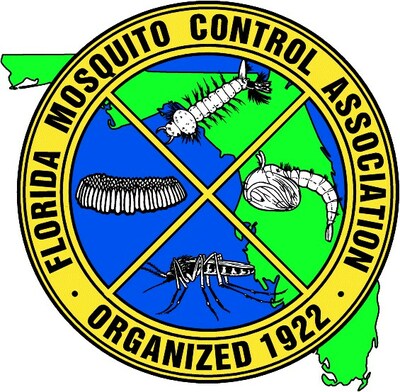As Chikungunya Emerges Abroad, Florida Stands Guard Against Aedes aegypti and Aedes albopictus Threats
PR Newswire
TALLAHASSEE, Fla., Aug. 20, 2025
~Mosquito Species Responsible for Spreading Chikungunya~
TALLAHASSEE, Fla., Aug. 20, 2025 /PRNewswire/ -- As international headlines focus on a fast-moving chikungunya outbreak in southern China that has sickened thousands, Florida mosquito control professionals are reminding residents that the Aedes aegypti and Aedes albopictus mosquito—the same species responsible for spreading chikungunya—also lives here in the Sunshine State.
"The invasive Aedes mosquitoes may be small, but it is one of the most dangerous threats to public health in Florida," said Dr. Jorge Rey, President of the Florida Mosquito Control Association. "This single species can transmit chikungunya, dengue fever, Zika virus, and yellow fever."
"While most people remember Zika's devastating birth defect risks or dengue's severe flu-like symptoms, chikungunya brings its own serious dangers—high fever, rash, and joint pain so intense it can last for weeks or even months. That's why these mosquitoes remain one of our highest-priority targets for mosquito control programs, and why Florida invests in the most advanced mosquito control strategies in the world."
Worries about the spread of disease are increasing. Just last week, the Centers for Disease Control elevated the chikungunya risk for travelers to a province in China. Florida has confronted an outbreak in the past with nearly 300 cases in 2014.
The warning by FMCA mosquito control experts is more than just science—it's a reality for people who have faced these diseases firsthand.
"As an avid traveler, I contracted chikungunya while abroad. Just two days after returning home, I went from feeling perfectly fine to spiking a 104-degree fever in minutes. The intense fever, debilitating joint pain, and crushing fatigue sent me to my doctor several times, worried about what I had and whether I would ever feel like myself again," said Jenifer McBride, communications director, Lee County Mosquito & Hyacinth Control Districts. "It took six months before I was completely free from the joint pain, which disrupted many everyday activities I once took for granted."
McBride's experience is a stark reminder of the serious dangers mosquitoes can pose and that they aren't just something happening overseas—they can and do touch lives here in Florida.
And the active risks of mosquito-borne illness in Florida this year includes Dengue fever with nearly 100 cases in the state so far this year.
That's why our state's mosquito control programs are built to be ready before these threats spread, using the most advanced tools and techniques available anywhere.
Florida is prepared. For more than a century, mosquito control in our state has been a model for the nation and the world. The Florida Mosquito Control Association (FMCA) and its members - 67 mosquito control programs including 15 independent districts - use a layered approach that blends advanced science, field expertise, and community awareness.
Today, Florida's defenses include:
- Advanced drones to identify, monitor and treat breeding sites, even in hard-to-reach areas.
- State-of-the-art laboratories that test mosquito populations for viruses, often detecting threats before they spread to people.
- Sentinel chickens and livestock monitoring, providing early warning signals of disease activity.
- Proven biological controls, such as mosquitofish that feed on mosquito larvae and deter adult mosquitoes from laying eggs.
- Sterile Insect Technique (SIT), where male mosquitoes are exposed to low-dose x-rays that renders them sterile. When released, these males mate with females, producing no viable offspring—reducing mosquito populations over time.
- Oxitec's targeted biological control mosquitoes, which carry a self-limiting gene that prevents female offspring from surviving, thereby suppressing the population of Aedes aegypti.
- Wolbachia technology, which introduces naturally occurring bacteria into mosquito populations, blocking the transmission of viruses like chikungunya, dengue, and Zika.
- Comprehensive insecticide resistance monitoring across Florida, assisting mosquito control professionals to make informed, effective treatment decisions.
- Innovative larvicide applications targeting mosquitoes at the source using wide-area larvicide applications using natural soil bacteria to target mosquitoes at the larval stage—the most effective point of control.
- Ultra-low volume applications using a fine-mist of adulticide in extremely small amounts—often less than one ounce per acre (about a shot glass over a football field).
These tools allow Florida to act quickly, precisely, and safely—without relying on outdated, fogging methods still used in some parts of the world.
"Florida's mosquito control professionals are always on alert," said Dr. Rey. "Our technology and expertise mean we can respond rapidly to any emerging mosquito-borne disease threat while keeping public health and safety as our top priorities."
The public also plays an important role. Floridians can help by removing standing water around homes, wearing EPA-registered insect repellent, and reporting unusual mosquito activity to local mosquito control programs.
Like hurricane preparedness, mosquito vigilance must be a year-round habit. With changing global travel patterns and climate conditions, Florida's readiness is not a luxury—it's a necessity.
For more information on the Florida Mosquito Control Association, click here.
About FMCA:
The Florida Mosquito Control Association (FMCA) and its members - 67 mosquito control programs including 15 independent districts - are dedicated to protecting public health and comfort. Their focus is not only pest management—it is a critical public service that safeguards people, pets, and livestock from disease and distress.
Contact: Alia Faraj-Johnson, 850-212-8317
![]() View original content to download multimedia:https://www.prnewswire.com/news-releases/as-chikungunya-emerges-abroad-florida-stands-guard-against-aedes-aegypti-and-aedes-albopictus-threats-302534125.html
View original content to download multimedia:https://www.prnewswire.com/news-releases/as-chikungunya-emerges-abroad-florida-stands-guard-against-aedes-aegypti-and-aedes-albopictus-threats-302534125.html
SOURCE Florida Mosquito Control Association


